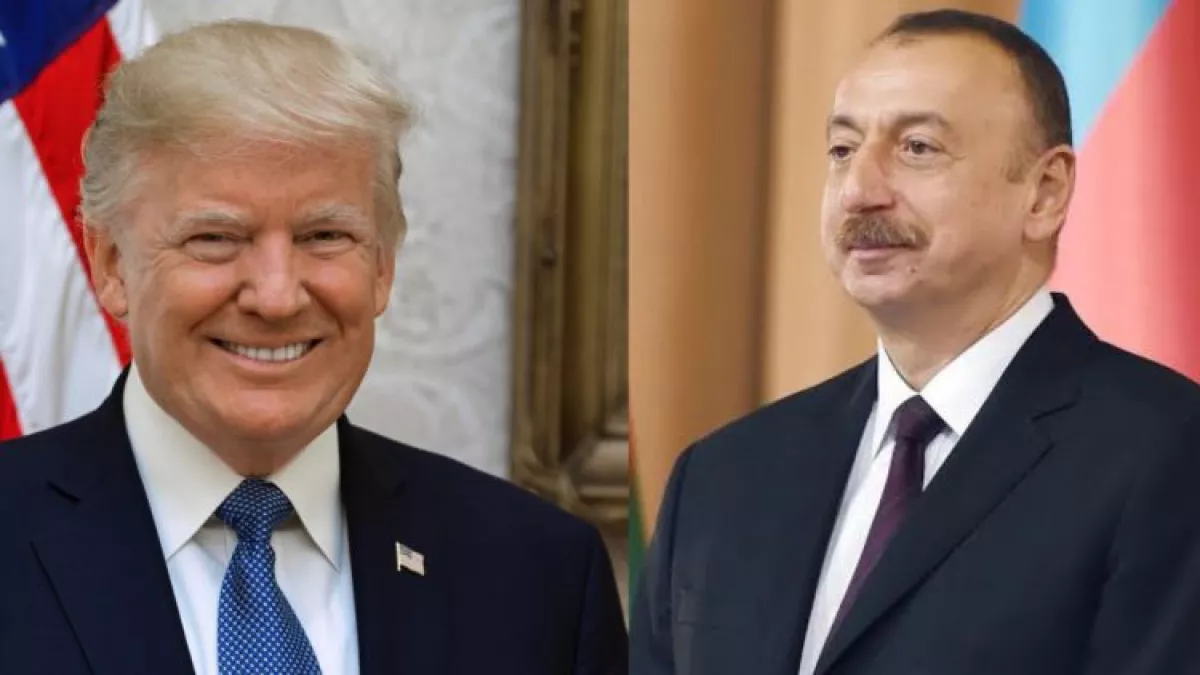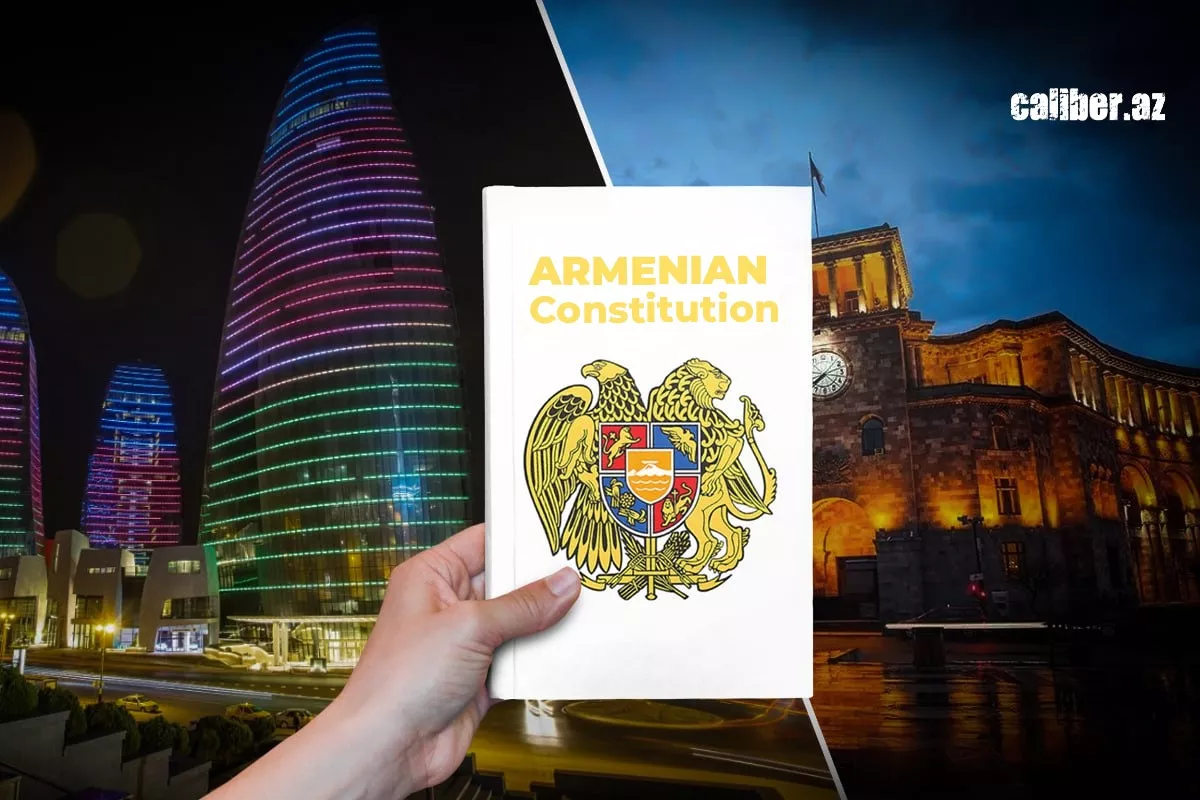Baku–Washington: On the wings of change Ahead of Ilham Aliyev’s visit to the United States
President of Azerbaijan Ilham Aliyev is set to visit the United States at the official invitation of President Donald Trump. This event holds significance not only for bilateral relations but also for the entire South Caucasus region. In essence, this is a step that could set the tone for relations between the two countries for years to come. And this is no mere figure of speech: in recent months, Azerbaijan and the United States have moved from routine diplomatic engagement to closer and more trusting cooperation.
It is important to clarify that the phrase “routine diplomatic engagement” here carries a rather negative connotation, as relations between Baku and Washington consistently deteriorated under the Biden administration — largely due to the latter’s actions. This decline stemmed from attempts to impose an unfair vision for the South Caucasus on our country, one shaped by the global Armenian narrative and certain forces in the Western world. The U.S. once again pulled out the archived Section 907 amendment and attempted to use it as a tool of pressure on Baku. Members of Congress and certain American politicians levelled unfounded accusations against Azerbaijan. However, thanks to the clear and principled stance of President Aliyev, this pressure failed to yield the intended results. With Donald Trump’s return to the White House, the situation is changing, and both countries now have a renewed opportunity for mutually beneficial cooperation.

Trump, as is well known, is not beholden to the Armenian diaspora in the United States. Moreover, he is a pragmatic politician, unburdened by outdated ideological dogmas. When this is combined with Azerbaijan’s fair and transparent policy—having restored its territorial integrity—it becomes clear that Washington and Baku are united by shared interests.
The relationship between the two leaders did not emerge out of thin air. Back in the summer of 2024, during the Global Media Forum in Shusha, President Aliyev, when asked about the upcoming U.S. elections in November, highlighted Trump’s refusal to drag the country into new military conflicts, his respect for traditional values, and his ability to maintain stability in both domestic and foreign policy. This was not merely a diplomatic courtesy—such remarks reflect Azerbaijan’s balanced and pragmatic approach to global affairs.
This was later followed by personal contact: phone conversations, exchanges of letters, which conveyed not only official respect but also personal trust. A symbolic high point in this mutual confidence came when President Aliyev offered warm words about Donald Trump at the 3rd Shusha Global Media Forum—remarks which Trump then shared on his social network, Truth Social.
The current visit signals that the dialogue between Azerbaijan and the United States has moved into a practical phase—where concrete steps can now be negotiated.
At the heart of today’s strategic partnership between Azerbaijan and the U.S. lie several key areas of cooperation.
The first is energy and trade. The United States supports the safe and efficient delivery of Caspian resources to Western markets, including the Trans-Adriatic Pipeline project, which has strengthened Europe’s energy security while opening up new economic opportunities for Azerbaijan. It is worth noting that political and diplomatic backing from President Trump’s administration during his first term played a crucial role in the implementation of this project.
The second area is the digital economy and artificial intelligence. American technologies and investments are aimed at developing Azerbaijan’s non-oil sector, laying the groundwork for future innovation.
The third is security and defence: joint efforts to combat terrorism and strengthen regional stability. These three areas of cooperation are expected to be among the key topics discussed during President Aliyev’s visit to Washington.
Another important item on the agenda of Ilham Aliyev’s visit to the U.S. is the normalisation of relations between Azerbaijan and Armenia. Following Azerbaijan’s victory in the Patriotic War of 2020 and the subsequent anti-terrorist operations in 2023, the country has fully restored its sovereignty and altered the balance of power in the South Caucasus. Baku is now seeking to solidify the new realities through legal and diplomatic means and to achieve lasting peace based on international law. Among the key conditions are the official termination of the OSCE Minsk Group’s mandate and the removal of territorial claims against Azerbaijan from Armenia’s Constitution.

The issue of opening the Zangezur Corridor, while not formally part of the peace agreement framework, remains a critically important element for building trust between Baku and Yerevan. Without resolving this matter, achieving a long-term peace is hardly conceivable.
Azerbaijan and Armenia have already made significant progress in the peace process, particularly through direct bilateral dialogue. However, the aforementioned issues remain unresolved and continue to weigh heavily on the prospects of a future peace agreement. The Armenian leadership still looks over its shoulder at political forces within the country that yearn for revenge—hence the delays and resistance to meaningful change.
At the same time, there are signs that under favourable conditions, all outstanding issues could be settled. One such favourable condition could be the position of the United States and, in particular, that of President Trump. The authority of the United States has the potential to support Azerbaijan’s just demands and, if necessary, exert influence on the Armenian side to accelerate the signing of a peace treaty.
It is worth noting that Armenian Prime Minister Nikol Pashinyan is also expected to visit Washington at the same time as President Aliyev.
President Aliyev’s visit to the United States also serves as a clear signal to those forces that for years have sought to portray Azerbaijan in a negative light—from certain European politicians to so-called international human rights organisations that have approached the region through a biased, pro-Armenian lens. When we say “pro-Armenian,” it is important to clarify that such positions are not genuinely in the interest of the Armenian people. Rather, they promote narratives that are ultimately destructive for Armenia itself—narratives designed to keep the country in a state of perpetual isolation in the South Caucasus.
The true interests of the Armenian people today lie in normalising relations with Baku and Ankara and fully engaging in regional cooperation initiatives.
This is precisely the vision for the region that President Ilham Aliyev is advocating—and it is this vision, we hope, that will be reinforced during the upcoming meeting in Washington. By resolving the Karabakh conflict, Azerbaijan has effectively emerged as the leader of the South Caucasus. In this new role, it is pursuing the goal of shaping the region’s political and economic future in the most effective and sustainable way.
There is reason to believe that the White House shares Baku’s aspirations, and the upcoming talks may prove to be a pivotal milestone—not only on the path to peace, but to lasting prosperity in the South Caucasus.








